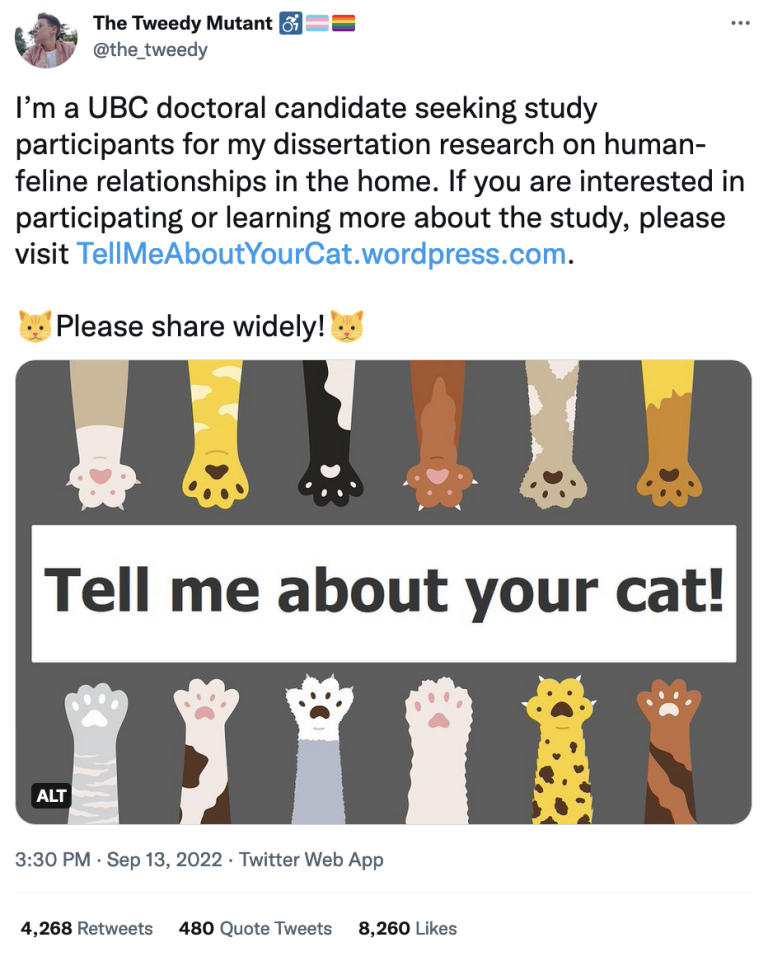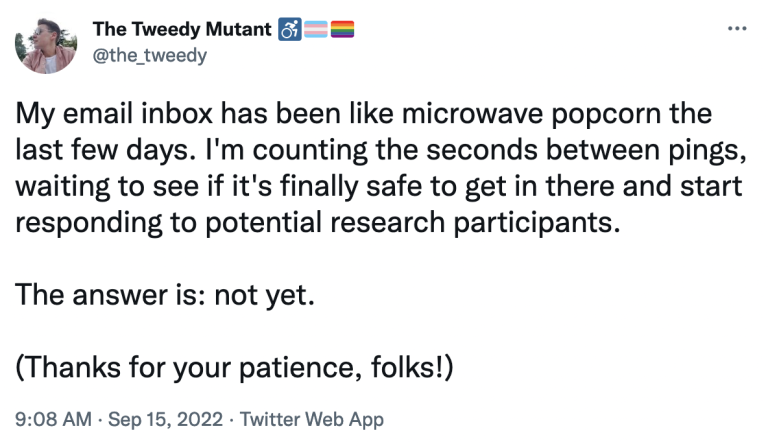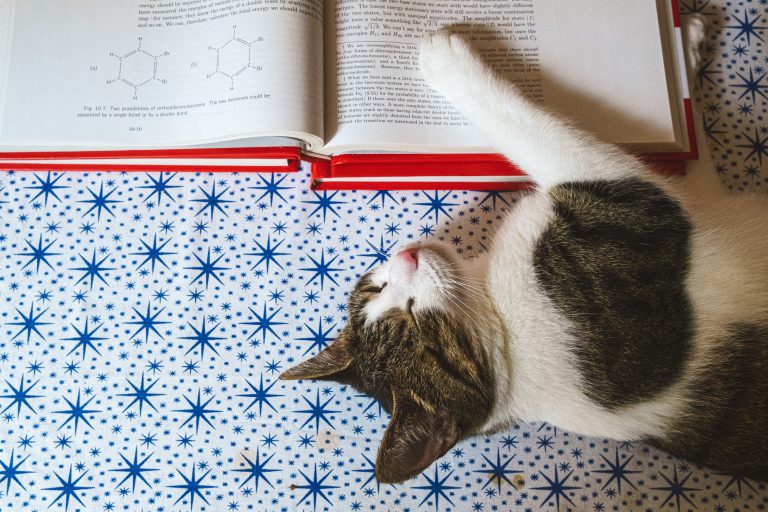It all started with a Tweet…


Geography PhD candidate Corin Parsons was hoping to speak to a few dozen people about their relationship with their pet cats. Now, his inbox is bursting with emails from over 4,000 interested parties — a figure that keeps rising every day.
So how did this happen?
Like many graduate students before him, Parsons turned to social media to recruit some research participants for his dissertation on human-feline relationships.
So far, so normal. However, it turns out this particular request struck a chord with a lot of people. The tweet began to pick up pace. Then some more.


When the dust finally settled, Parsons was faced with thousands more potential research participants than his project was designed for… and also a lifetime’s worth of cat photos from total strangers.
However, despite the attendant challenges, he’s thrilled with the response. “It’s delightful! I happen to think that I lucked into the best dissertation topic ever, so it’s great to see other folks equally excited and enthusiastic about contributing.”
As to why the request took off the way it did? He has a theory. “Human-feline relationships are rich and rewarding but usually experienced privately and rarely given much weight in society, so I suspect that cat people are, at all times, secretly hoping to be asked about their cats,” he says.
This clearly rings especially true for the scientific community, as the post was even included in Nature Briefing (though not by Parsons himself).
“So I have a number of emails from Very Serious Scientists wanting to tell me about their cats,” he laughs. “This shouldn’t come as a surprise, however. We need only look to the example of feline physicist F. D. C. Willard to appreciate cats’ important contributions to scientific inquiry.”
The overwhelming response may necessitate a change in Parsons’ research strategy, but he sees that as a positive. “This is a great opportunity for a more data-rich project than I previously anticipated! I am now working on a survey component. I would like to ensure that everyone who wants to participate can do so.”
What has he taken away from this whole experience? “If you are going to ask the internet about cats, be prepared for the consequences…”
You can keep up to date with Corin Parsons’ work (and his own cats!) on Twitter.



